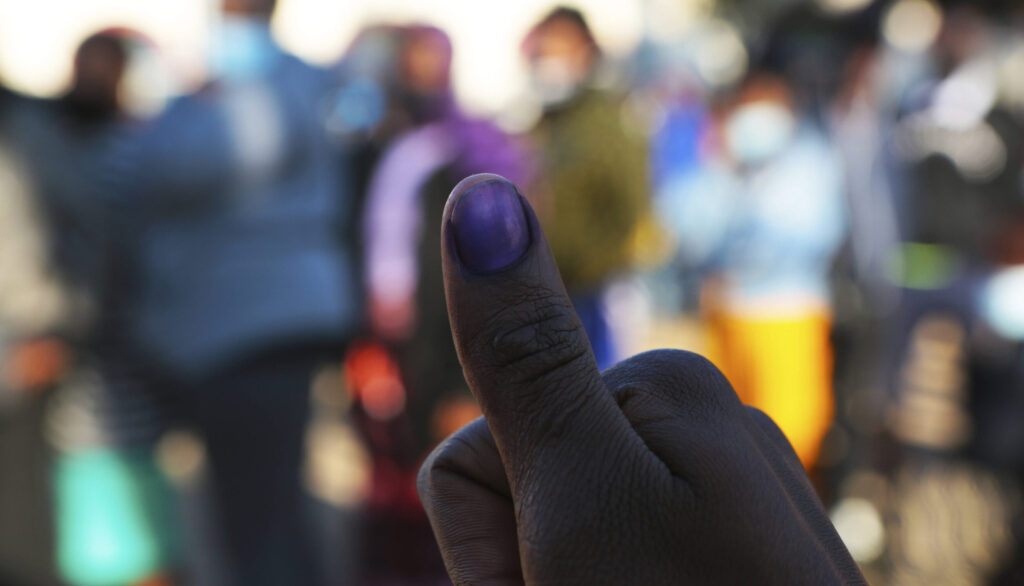
This originally appeared on TheAfricaReport.com
Elections across Africa in 2021 began with a bang and ended with surprises: from military coups, to complaints of rigging, to stable leaders. What will 2022 bring?
The 2022 election calendar across Africa will be relatively quiet. A couple of polls will not take place. For example, Mali’s interim leadership recently said it will confirm a timetable for return to democratic rule by 31 January.
This deadline suggests that military rule will likely extend beyond the originally planned 18 months, with presidential and legislative elections not being held on 27 February. In Sudan, General Abdel Fattah al-Burhan says the next election will be held in 2023… Elections were originally scheduled for 2022 following the military coup the previous year and the Sudanese transition-to-democracy deal.
Still, three elections will be closely watched in 2022.
Libya
Libya is the election that political analysts continue to watch, mostly to see if it will happen. The poll was recently postponed and the electoral commission has proposed 24 January as the new date. It is not clear whether the issues of candidate eligibility and security that led to the delay will be resolved by the new election date.
At the end of 2020, the excitement is based on the ceasefire agreement in October between the two parties in the country’s ongoing civil war – the internationally-recognised Government of National Accord (GNA), led by President Fayez al-Sarraj, and the eastern-based Libyan National Army (LNA), led by military commander Khalifa Haftar.
Going into 2022, not much has changed. The next leader will likely be related to the Gaddafi era or the fallout thereafter. Haftar, who was financially backed by the UAE and Saudi Arabia in the civil war, is a leading candidate alongside Seif al-Islam al-Qaddafi, the son of former Libyan dictator Muammar Gaddafi. Abdul Hamid Ddeibeh, the interim prime minister and former head of the country’s largest construction company during Gaddafi’s era, is also a serious challenger. Numerous other names will be on the ballot, but not with similar name recognition as Haftar, Gaddafi, and Ddeibeh.
Who will win? If the election happens, then Libyans will win. If one is to gamble on which candidate will win, there is a feeling that many young Libyans have a nicer view of the Gaddafi days and could support Seif.
Kenya
Kenyans will choose a new president in 2022. Term limits prevent President Uhuru Kenyatta from running for a third term. Kenyatta’s longtime rival, Raila Odinga, recently announced his fifth bid for the presidency, ending months of speculation following the truce between them. Some observers think that, as part of the pact, the 76 year-old is being set up to become the next president.
However, it is Kenyatta’s deputy and fellow party member, William Ruto, who is the frontrunner to succeed him: recent polls show that he has a 15% lead over Raila. Whoever wins will have to inspire and lead a country where polling sadly shows that Kenyans are worried about the future of the country. Covid-19, economy, education, and jobs remain the major concerns, with no clear solutions in sight for the underlying challenges.
Who will win? All the numbers suggest a victory for Ruto, especially considering the results from the polls.
Angola
Next year’s election will be the second since the retirement of President José Eduardo dos Santos, who held the post for 38 years as leader of the Popular Movement for the Liberation of Angola (MPLA). Dos Santos handpicked João Lourenço (now finishing his first term) to be his successor as both head of the MPLA and the presidency. Under Angola’s constitution, the presidency is awarded to the head of the party with the most seats in the National Assembly. The MPLA has led the country since Angola gained independence from Portugal in 1975.
The largest opposition party, National Union for the Total Independence of Angola (Unita), has established an alliance with two other parties, under the name Patriotic Front. Unita leader, Adalberto Costa Júnior, will lead the Patriotic Front into this election. Nothing suggests that the MPLA may lose this election.
A recession continues to plague Angola as oil exports are down, but the current spike in oil prices could provide short-term relief. Lourenço can also blame Covid-19 and travel restrictions for hampering a global economy and Angola taking a hit from this.
Who will win? Unless the opposition changes the narrative, Angolans will re-elect the MPLA on the basis that Lourenço deserves more time as Covid-19 has undermined his efforts to guide the country to better times
